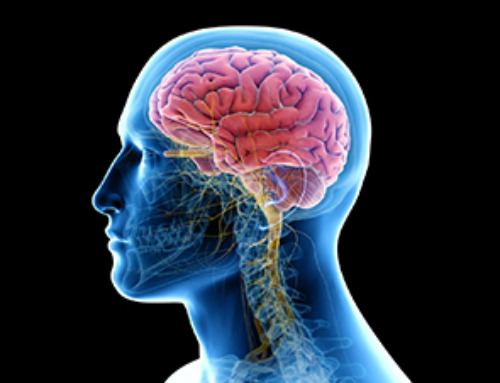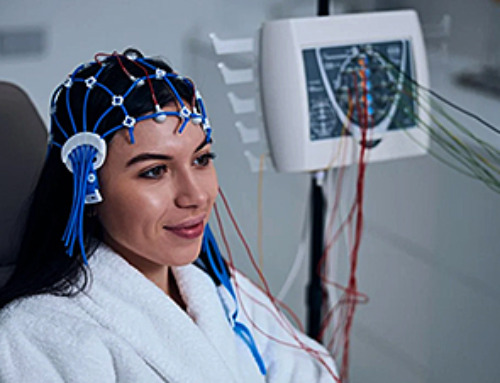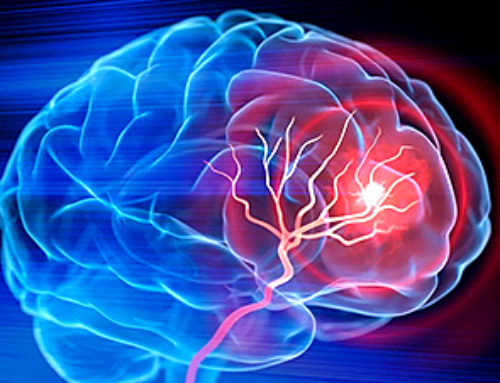A 96% accurate blood test for ME/CFS could transform diagnosis and pave the way for future long COVID detection.
Researchers from the University of East Anglia and Oxford Biodynamics have created a highly accurate blood test capable of diagnosing Chronic Fatigue Syndrome, also known as Myalgic Encephalomyelitis (ME/CFS).
This long-term and debilitating condition affects millions of people around the world, including more than 400,000 in the UK, yet it remains poorly understood and has lacked reliable diagnostic methods for decades.
Achieving an accuracy rate of 96 percent, the new test provides renewed hope for patients who have often faced years of uncertainty, misdiagnosis, or dismissal of their symptoms.
And it is hoped that the breakthrough could pave the way for a similar blood test to diagnose Long COVID.
Lead researcher Prof Dmitry Pshezhetskiy, from UEA's Norwich Medical School, said: "ME/CFS is a serious and often disabling illness characterized by extreme fatigue that is not relieved by rest.
"We know that some patients report being ignored or even told that their illness is 'all in their head'.
"With no definitive tests, many patients have gone undiagnosed or misdiagnosed for years.
"We wanted to see if we could develop a blood test to diagnose the condition – and we did!
"Our discovery offers the potential for a simple, accurate blood test to help confirm a diagnosis, which could lead to earlier support and more effective management."
"Post-COVID syndrome, commonly referred to as long COVID, is one example of ME/CFS, where a similar cluster of symptoms is triggered by the COVID-19 virus, rather than by other known causes such as glandular fever. We therefore hope that our research will also help pave the way for a similar test to accurately diagnose long Covid."
How the discovery was made
The researchers used Oxford BioDynamics' advanced EpiSwitch® 3D Genomics technology (AIM:OBD) to examine how DNA folds within blood samples collected from 47 individuals with severe ME/CFS and 61 healthy participants.
Inside each human cell lies about two meters of DNA, intricately packed and folded in three dimensions. These folds are not random; rather, millions of them are precisely arranged to create a regulatory code that controls when genes are switched on or off, ensuring normal cellular function.
OBD Chief Scientific Officer, Alexandre Akoulitchev, said: "Chronic Fatigue Syndrome is not a genetic disease you're born with. That's why using EpiSwitch 'epigenetic' markers – which can change during a person's life, unlike fixed genetic code – was key to reaching this high level of accuracy.
"The EpiSwitch platform behind this test, together with OBD's vast 3D Genomic knowledge base, has already been proven to deliver practical, rapid blood diagnostics accessible at scale.
"With this breakthrough, we are proud to enable a first-in-class test that can address an unmet need for a quick and reliable diagnostic for a complex, challenging-to-identify illness."
DNA folding patterns reveal key disease markers
This approach using EpiSwitch has previously shown success in identifying disease-specific blood markers in highly complex inflammatory and neurological conditions such as fast ALS (amyotrophic lateral sclerosis), rheumatoid arthritis, and certain cancers. This includes the EpiSwitch PSE test, which is a blood test with world-leading accuracy for prostate cancer already used in the UK and US.
The team discovered a unique pattern that appears consistently in people with ME/CFS that is not seen in healthy people.
Using a different approach, this work looked beyond the linear DNA sequence investigated by a previously published DecodeME study, the largest genetic investigation of ME/CFS to date.
By examining 3D genomic folds, UEA and Oxford BioDynamics revealed hundreds of additional changes, including five of the eight sites identified by DecodeME, which can now provide a deeper understanding of the disease.
The analysis showed remarkable accuracy – with 92 percent sensitivity in identifying ME/CFS, which indicates how well the test identifies those who have the disease (a show of true positives) and 98 percent specificity, which indicates how well it identifies those who do not have the disease.
The researchers also found signs of immune system and inflammation pathways involved in the disease, which may help guide future treatments and identify patients more likely to respond to specific therapies.
A vital tool for diagnosis and treatment
"This is a significant step forward," said UEA's Prof Pshezhetskiy. "For the first time, we have a simple blood test that can reliably identify ME/CFS – potentially transforming how we diagnose and manage this complex disease."
"Additionally, understanding the biological pathways involved in ME/CFS opens the door to developing targeted treatments and identifying which patients might benefit most from specific therapies.
"We hope that the Episwitch® CFS test could become a vital tool in clinical settings, paving the way for more personalized and effective care."
Reference: "Development and validation of blood-based diagnostic biomarkers for Myalgic Encephalomyelitis/Chronic Fatigue Syndrome (ME/CFS) using EpiSwitch® 3-dimensional genomic regulatory immuno-genetic profiling" by Ewan Hunter, Heba Alshaker, Oliver Bundock, Cicely Weston, Shekinah Bautista, Abel Gebregzabhar, Anya Virdi, Joseph Croxford, Ann Dring, Ryan Powell, Dominik Vugrinec, Caroline Kingdon, Carol Wilson, Sarah Dowrick, Jayne Green, Alexandre Akoulitchev and Dmitri Pchejetski, 8 October 2025, Journal of Translational Medicine.
DOI: 10.1186/s12967-025-07203-w
News
Scientists Discover a New “Cleanup Hub” Inside the Human Brain
A newly identified lymphatic drainage pathway along the middle meningeal artery reveals how the human brain clears waste. How does the brain clear away waste? This task is handled by the brain’s lymphatic drainage [...]
New Drug Slashes Dangerous Blood Fats by Nearly 40% in First Human Trial
Scientists have found a way to fine-tune a central fat-control pathway in the liver, reducing harmful blood triglycerides while preserving beneficial cholesterol functions. When we eat, the body turns surplus calories into molecules called [...]
A Simple Brain Scan May Help Restore Movement After Paralysis
A brain cap and smart algorithms may one day help paralyzed patients turn thought into movement—no surgery required. People with spinal cord injuries often experience partial or complete loss of movement in their arms [...]
Plant Discovery Could Transform How Medicines Are Made
Scientists have uncovered an unexpected way plants make powerful chemicals, revealing hidden biological connections that could transform how medicines are discovered and produced. Plants produce protective chemicals called alkaloids as part of their natural [...]
Scientists Develop IV Therapy That Repairs the Brain After Stroke
New nanomaterial passes the blood-brain barrier to reduce damaging inflammation after the most common form of stroke. When someone experiences a stroke, doctors must quickly restore blood flow to the brain to prevent death. [...]
Analyzing Darwin’s specimens without opening 200-year-old jars
Scientists have successfully analyzed Charles Darwin's original specimens from his HMS Beagle voyage (1831 to 1836) to the Galapagos Islands. Remarkably, the specimens have been analyzed without opening their 200-year-old preservation jars. Examining 46 [...]
Scientists discover natural ‘brake’ that could stop harmful inflammation
Researchers at University College London (UCL) have uncovered a key mechanism that helps the body switch off inflammation—a breakthrough that could lead to new treatments for chronic diseases affecting millions worldwide. Inflammation is the [...]
A Forgotten Molecule Could Revive Failing Antifungal Drugs and Save Millions of Lives
Scientists have uncovered a way to make existing antifungal drugs work again against deadly, drug-resistant fungi. Fungal infections claim millions of lives worldwide each year, and current medical treatments are failing to keep pace. [...]
Scientists Trap Thyme’s Healing Power in Tiny Capsules
A new micro-encapsulation breakthrough could turn thyme’s powerful health benefits into safer, smarter nanodoses. Thyme extract is often praised for its wide range of health benefits, giving it a reputation as a natural medicinal [...]
Scientists Develop Spray-On Powder That Instantly Seals Life-Threatening Wounds
KAIST scientists have created a fast-acting, stable powder hemostat that stops bleeding in one second and could significantly improve survival in combat and emergency medicine. Severe blood loss remains the primary cause of death from [...]
Oceans Are Struggling To Absorb Carbon As Microplastics Flood Their Waters
New research points to an unexpected way plastic pollution may be influencing Earth’s climate system. A recent study suggests that microscopic plastic pollution is reducing the ocean’s capacity to take in carbon dioxide, a [...]
Molecular Manufacturing: The Future of Nanomedicine – New book from Frank Boehm
This book explores the revolutionary potential of atomically precise manufacturing technologies to transform global healthcare, as well as practically every other sector across society. This forward-thinking volume examines how envisaged Factory@Home systems might enable the cost-effective [...]
New Book! NanoMedical Brain/Cloud Interface – Explorations and Implications
New book from Frank Boehm, NanoappsMedical Inc Founder: This book explores the future hypothetical possibility that the cerebral cortex of the human brain might be seamlessly, safely, and securely connected with the Cloud via [...]
Global Health Care Equivalency in the Age of Nanotechnology, Nanomedicine and Artificial Intelligence
A new book by Frank Boehm, NanoappsMedical Inc. Founder. This groundbreaking volume explores the vision of a Global Health Care Equivalency (GHCE) system powered by artificial intelligence and quantum computing technologies, operating on secure [...]
Miller School Researchers Pioneer Nanovanilloid-Based Brain Cooling for Traumatic Injury
A multidisciplinary team at the University of Miami Miller School of Medicine has developed a breakthrough nanodrug platform that may prove beneficial for rapid, targeted therapeutic hypothermia after traumatic brain injury (TBI). Their work, published in ACS [...]
COVID-19 still claims more than 100,000 US lives each year
Centers for Disease Control and Prevention researchers report national estimates of 43.6 million COVID-19-associated illnesses and 101,300 deaths in the US during October 2022 to September 2023, plus 33.0 million illnesses and 100,800 deaths [...]





















